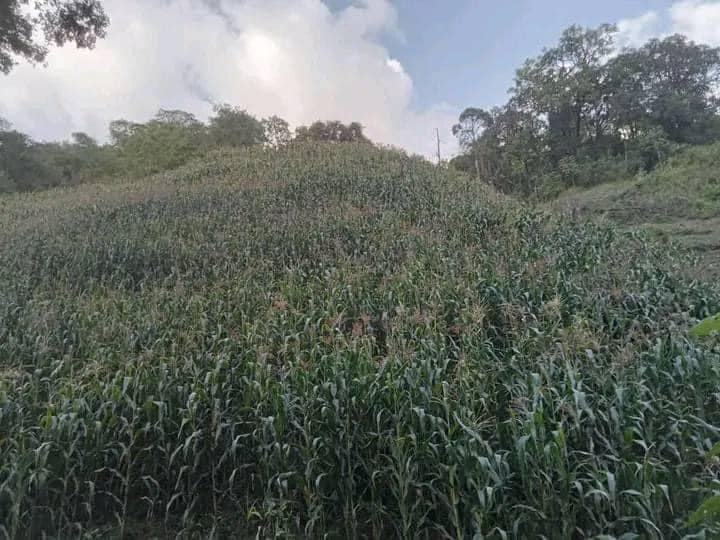
Our Projects are
Transforming African Trade
Quick Contacts
2nd Floor, Fidelity Insurance Centre Waiyaki Way, Westlands

Grain production in East Africa has received a boost after the United States (US) Government offered a three-year grant worth US$2 million (Ksh324 million) to the East African Grain Council (EAGC), aiming to increase production in the region.
Through the United States Agency for International Development (USAID) Economic Recovery and Reform Activity (ERRA) program delivered by the Trade Mark Africa (TMA) with funding from Feed the Future, the initiative aims at strengthening the competitiveness of export-oriented staple food value chains in East Africa.
Through the five-year ERRA US$75 million (Ksh12, 150 million) program, USAID and TMA are driving transformative trade and investment reforms in the East and Horn of Africa to create jobs in the staple crops and textiles sectors, especially for women and youth.
A core part of this effort is to increase the ability of grain producers to export both regionally and to the rest of the world.
The grains sector has immense potential for food production and trade but has been hindered by low production rates, poor post-harvest management, and the devastating effects of climate change.
Speaking during the signing ceremony held in Nairobi, TMA’s CEO, Mr David Beer, revealed that the strategic collaboration with EAGC and USAID will boost grain exports within the region. “This includes spearheading innovative strategies such as Grain Business Hubs. They will be operated by farmers who will leverage technology to improve grain quality and drive up trade,” Mr Beer said.
The challenges around grain production contribute to low competitiveness in the regional markets, reduced cross-border trade, production deficits, and post-harvest losses that threaten the region’s food security.
The growth of grains in East and the Horn of Africa has been adversely affected by the effects of climate change, which include prolonged droughts and floods.
The funds allocated by the USAID will help leverage technologies and innovations to alleviate post-harvest losses, especially during heavy rains.
According to Mr Beer, the partnership with EAGC will directly tackle gaps, thus removing trade impediments and building grain exporters’ capacity in Kenya, Tanzania, and Uganda across export value chains such as maize, beans, millet, sorghum, and rice.
A major impediment to grain trading across the East Africa Region is businesses’ ability to comply with international standards.
However, EAGC will support over 80 Small and Medium Enterprises (SMEs) to successfully meet Sanitary and Phytosanitary (SPS) measures – which regulate the health of animals and plants that are traded – and Standards Quality Infrastructure (SQI) requirements that govern quality, health and safety systems, and environmental conservation. They are critical to their ability to export.
EAGC Executive Director, Gerald Masila expressed satisfaction that the partnership aligns with EAGC’s goal of facilitating structured, inclusive, and profitable grain trade.
During the pact agreement, he highlighted the numerous benefits for the grain sector, including access to agriculture-related financing, capacity building, and mentorship, leading to a commitment to industry self-regulation.
“The expected outcomes promise to transform lives and contribute significantly to regional economic prosperity. Our focus is on practical, impactful solutions, and by fortifying grain business hubs and enhancing the capacities of SMEs, we are building a foundation for sustained growth,” Mr Masila stated.
Establishing an information hub will be instrumental in informed decision-making, driving policy changes that positively impact food security and trade dynamics in the region.
The resource center will help shape national and regional food balance sheets by providing real-time data and insights.
Mr Masila said the hub will create an enabling environment for implementing prioritised trade policies, hence catalysing the food security agenda.
EAGC is a regional, not-for-profit council of firms and organisations in the grain value chain that is the leading voice of the grain industry in Africa.
Its mandate is to facilitate efficient, structured, inclusive, sustainable, and profitable grain trade through various interventions and programs that include policy research and advocacy, provision of market information, training, and capacity building, as well as developing structured grain trading systems.
Established in 2010, TMA, which recently rebranded to Trade Mark East Africa (TMEA), is a leading African Aid-for-Trade organisation aiming to grow intra-African trade and increase Africa’s share in global trade, while helping make trade more environmentally sustainable.
It focuses on reducing the cost and time of trading across borders through enhanced trade policy, better trade infrastructure, standards that work for businesses, greater use of digital innovations, and a focus on creating trade access.
Read original article
Disclaimer: The views and opinions expressed in this article are those of the authors and do not necessarily reflect the official policy or position of TradeMark Africa.